Related Research Articles

The Partitions of Poland were three partitions of the Polish–Lithuanian Commonwealth that took place toward the end of the 18th century and ended the existence of the state, resulting in the elimination of sovereign Poland and Lithuania for 123 years. The partitions were conducted by the Habsburg monarchy, the Kingdom of Prussia, and the Russian Empire, which divided up the Commonwealth lands among themselves progressively in the process of territorial seizures and annexations.

Egyptology is the study of ancient Egyptian history, language, literature, religion, architecture and art from the 5th millennium BC until the end of its native religious practices in the 4th century AD. A practitioner of the discipline is an "Egyptologist". In Europe, particularly on the Continent, Egyptology is primarily regarded as being a philological discipline, while in North America it is often regarded as a branch of archaeology.

Emilia-Romagna is one of the 20 administrative regions of Italy, situated in the north of the country, comprising the historical regions of Emilia and Romagna. Its capital is Bologna. It has an area of 22,446 km2 (8,666 sq mi), and about 4.4 million inhabitants.
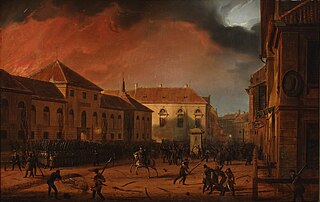
The November Uprising (1830–31), also known as the Polish–Russian War 1830–31 or the Cadet Revolution, was an armed rebellion in the heartland of partitioned Poland against the Russian Empire. The uprising began on 29 November 1830 in Warsaw when young Polish officers from the military academy of the Army of Congress Poland revolted, led by Lieutenant Piotr Wysocki. Large segments of the peoples of Lithuania, Belarus, and the Right-bank Ukraine soon joined the uprising. Although the insurgents achieved local successes, a numerically superior Imperial Russian Army under Ivan Paskevich eventually crushed the uprising. The Russian Emperor Nicholas I issued the Organic Statute in 1832, according to which henceforth Russian-occupied Poland would lose its autonomy and become an integral part of the Russian Empire. Warsaw became little more than a military garrison, and its university closed.

Aššur (; Sumerian: 𒀭𒊹𒆠 AN.ŠAR2KI, Assyrian cuneiform: Aš-šurKI, "City of God Aššur"; Syriac: ܐܫܘܪ Āšūr; Old Persian 𐎠𐎰𐎢𐎼Aθur, Persian: آشور: Āšūr; Hebrew: אַשּׁוּר, ʾAššūr, Arabic: اشور), also known as Ashur and Qal'at Sherqat, was the capital of the Old Assyrian city-state (2025–1364 BC), the Middle Assyrian Empire (1363–912 BC), and for a time, of the Neo-Assyrian Empire (911–609 BC). The remains of the city lie on the western bank of the Tigris River, north of the confluence with its tributary, the Little Zab, in what is now Iraq, more precisely in the al-Shirqat District of the Saladin Governorate.

Józef Oleksy was a Polish left-wing politician, former chairman of the Democratic Left Alliance.

Near Eastern archaeology is a regional branch of the wider, global discipline of archaeology. It refers generally to the excavation and study of artifacts and material culture of the Near East from antiquity to the recent past.

Pre-Pottery Neolithic B (PPNB) is part of the Pre-Pottery Neolithic, a Neolithic culture centered in upper Mesopotamia and the Levant, dating to c. 10,800 – c. 8,500 years ago, that is, 8800–6500 BCE. It was typed by British archaeologist Kathleen Kenyon during her archaeological excavations at Jericho in the West Bank.

The College of Europe is a post-graduate institute of European studies with its main campus in Bruges, Belgium and a second campus in Warsaw, Poland. The College of Europe in Bruges was founded in 1949 by leading historical European figures and founding fathers of the European Union, including Salvador de Madariaga, Winston Churchill, Paul-Henri Spaak and Alcide De Gasperi as one of the results of the 1948 Congress of Europe in The Hague to promote "a spirit of solidarity and mutual understanding between all the nations of Western Europe and to provide elite training to individuals who will uphold these values" and "to train an elite of young executives for Europe". It has the status of Institution of Public Interest, operating according to Belgian law. The second campus in Natolin (Warsaw), Poland opened in 1992. The College of Europe is historically linked to the establishment of the European Union and its predecessors, and to the creation of the European Movement International, of which the college is a supporting member. Federica Mogherini, former High Representative of the Union for Foreign Affairs and Security Policy, was appointed as the Rector to start in September 2020; former President of the European Council Herman, Count Van Rompuy is chairman of the board.
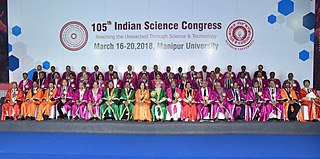
Indian Science Congress Association(ISCA) is a premier scientific organisation of India with headquarters at Kolkata, West Bengal. The association started in the year 1914 in Kolkata and it meets annually in the first week of January. It has a membership of more than 30,000 scientists.

Oriental studies is the academic field that studies Near Eastern and Far Eastern societies and cultures, languages, peoples, history and archaeology. In recent years, the subject has often been turned into the newer terms of Middle Eastern studies and Asian studies. Traditional Oriental studies in Europe is today generally focused on the discipline of Islamic studies, and the study of China, especially traditional China, is often called Sinology. The study of East Asia in general, especially in the United States, is often called East Asian studies.
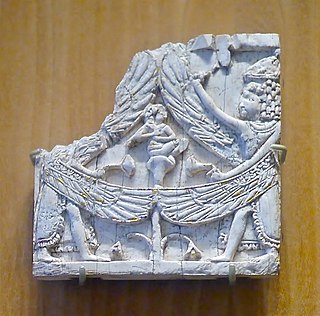
Arslan Tash, ancient Hadātu, is an archaeological site in Aleppo Governorate in northern Syria, around 30 kilometres (19 mi) east of Carchemish and the Euphrates and nearby the town of Kobanî.

Bologna is a city in and the capital of the Emilia-Romagna region in Northern Italy, of which it is also its largest. It is the seventh most populous city in Italy with about 400,000 inhabitants and 150 different nationalities. Its metropolitan area is home to more than 1,000,000 people. It is known as the Fat City for its rich cuisine, and the Red City for its Spanish-style red tiled rooftops and, more recently, its leftist politics. It is also called the Learned City because it is home to the oldest university in the world.

Akrai was a Greek colony founded in Sicily by the Syracusans in 663 BC. It was located near the modern Palazzolo Acreide.

European University Sports Association (EUSA) is an umbrella non-governmental (NGO) non-profit organisation, working in the field of university sport in Europe.
Al-Rawda is a tell, or archaeological settlement mound, in the Syrian steppe, east of Hama. It was a large urban site with city walls and several temples, occupied between 2400–2000 BC. A French–Syrian mission has been excavating the site since 2002.
Armi, was an important Bronze Age city-kingdom during the late third millennium BC located in northern Syria, or in southern Anatolia, Turkey, at the region of Cilicia.
The Congress of Roman Frontier Studies or Limes Congress is one of the most important conferences on archaeology in Europe. The conference takes place on a triennial basis, although there have been some exceptions. The first congress was held in Durham in 1949; the most recent one took place in Nijmegen, The Netherlands, in 2022.
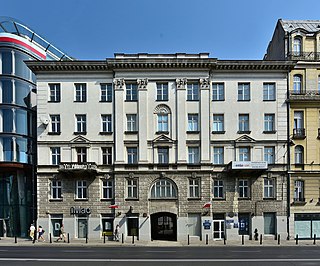
The Polish Centre of Mediterranean Archaeology University of Warsaw operates as an independent research institute of the University of Warsaw under the present name since 1990. It is dedicated to organizing, implementing and coordinating archaeological research, both excavations and study projects, as well as conservation, reconstruction and restoration projects, in northeastern Africa, the Near East and Cyprus. Projects include sites covering a broad chronological spectrum from the dawn of civilization through all the historic periods of the ancient Mediterranean civilizations to Late Antiquity and early Islam. Tasks beside fieldwork include comprehensive documentation of finds, archives management and publication of the results in keeping with international research standards. The PCMA manages the Research Centre in Cairo and Polish Archaeological Unit in Khartoum.
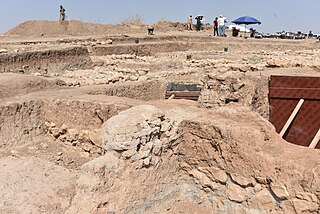
Tell Kunara is an ancient Near East archaeological site about 5 kilometres (3.1 mi) southwest of Sulaymaniyah in the Kurdistan region of Iraq. It lies on the Tanjaro River. The site was occupied from the Chalcolithic period to the early second millennium BC.
References
- ↑ "8th ICAANE Warsaw 2012". pcma.uw.edu.pl. Retrieved 2020-09-24.